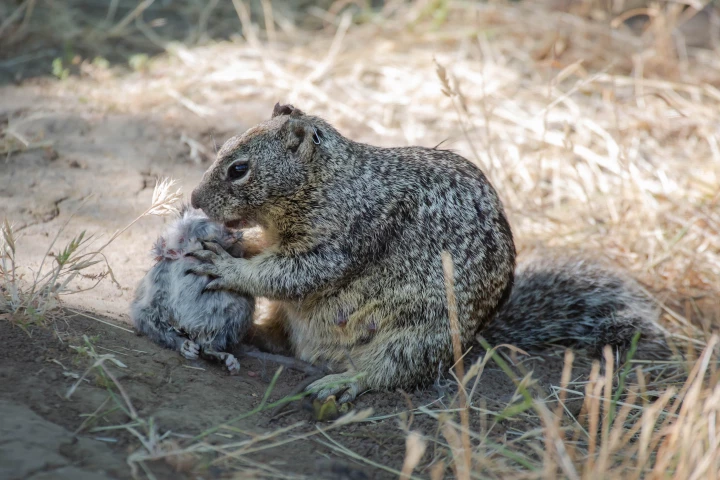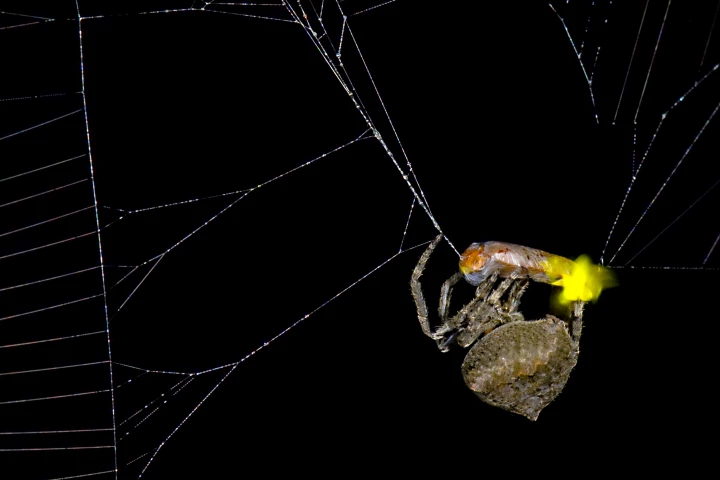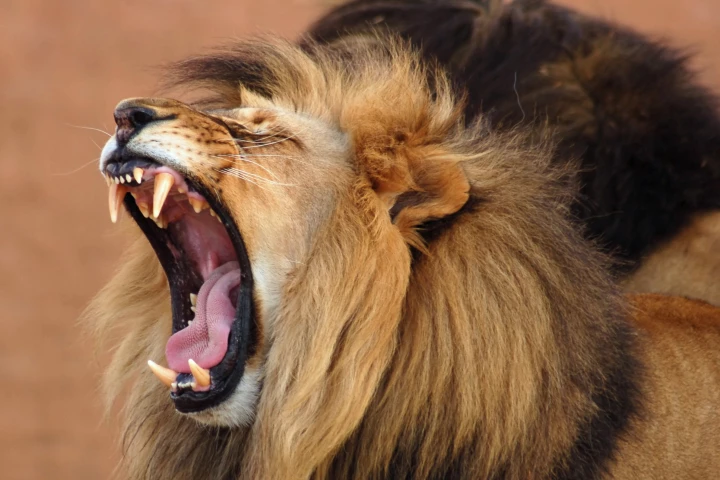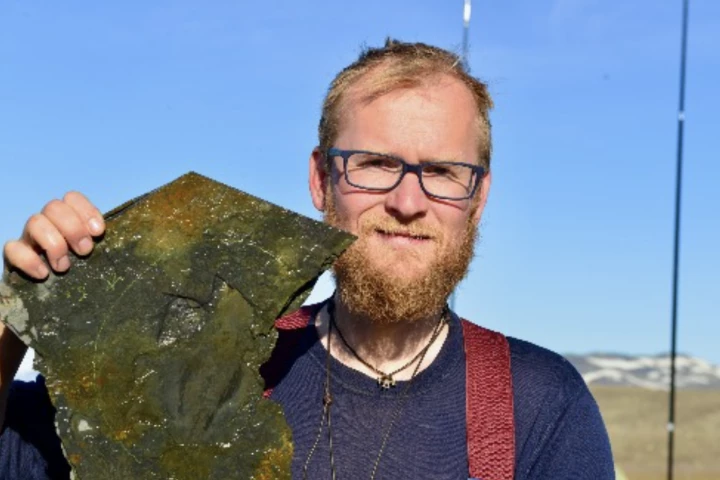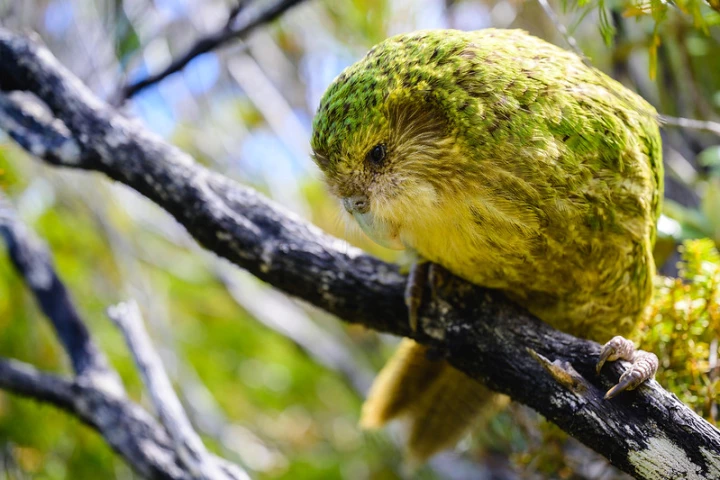Predator
-
Step aside, Van Gogh. New research shows that several orb-weaving species create giant web-mounted “doppelgängers” convincing enough to confuse potential predators. It’s a clever form of deception that nudges the line between instinct and ingenuity.
-
For the first time ever, a unique cooperative hunting arrangement between dolphins and orcas has been documented. Researchers believe killer whales find salmon by tailing dolphins, who in turn benefit from bite-sized fish pieces.
-
In the world of flying, stinging insects, Asian giant hornets reign supreme, reaching impressive sizes and wielding mighty venom-filled lances. Now, researchers have found an unlikely hero that can vanquish these buzzing badasses: the humble frog.
-
Humpback whales may look like gentle giants, but each year they undertake nature's most extreme crash diet, shedding 36% of their mass in less than two months. New insights into their epic annual swim has identified just how huge their fat loss is.
-
Unless you're a nut, cute little squirrels pose little threat – but they could have a surprising murderous streak. After watching squirrels in California for 12 years, scientists have seen them actively hunt and kill small rodents this past summer.
-
Some species have an incredible knack for hacking others to get what they want. Scientists have now discovered a fascinating new example – some spiders have been seen manipulating fireflies’ flashes to attract more bugs to their webs.
-
Mowing might seem like a pretty sensible way to keep weeds at bay. But in the case of the silverleaf nightshade, the activity puts the plant into survival mode causing it to fight back with some pretty powerful defense mechanisms, says a new study.
-
It almost sounds like a fairytale: a tiny ant dramatically impacting a giant lion. But thanks to a study that reveals just how interconnected all life forms really are, researchers have just figured out that it happened on the savannas of Africa.
-
Scientists have uncovered a new huge predatory worm species thought to have hunted in the Earth’s water column around 518 million years ago. They also believe this worm, whose name means terror beast, was one the earliest carnivorous swimming animals.
-
In a twist on using animals as biological control, a method that in the past has often had disastrous outcomes for native wildlife, scientists have successfully trained native bush rats to actively seek out a new food source they’ve never seen before.
-
In 2009, one frisky bird put a spotlight on his extremely endangered species when he mounted a zoologist’s head and proceeded to show the world his best mating skills. Now, in another bold move, four of his flock are returning to New Zealand's mainland.
-
With evolution there’s always a trade-off – long necks may help you find food but they’re also a massive weak spot. Now, paleontologists have found direct fossil evidence of prehistoric, long-necked marine reptiles being decapitated by predators.
Load More




